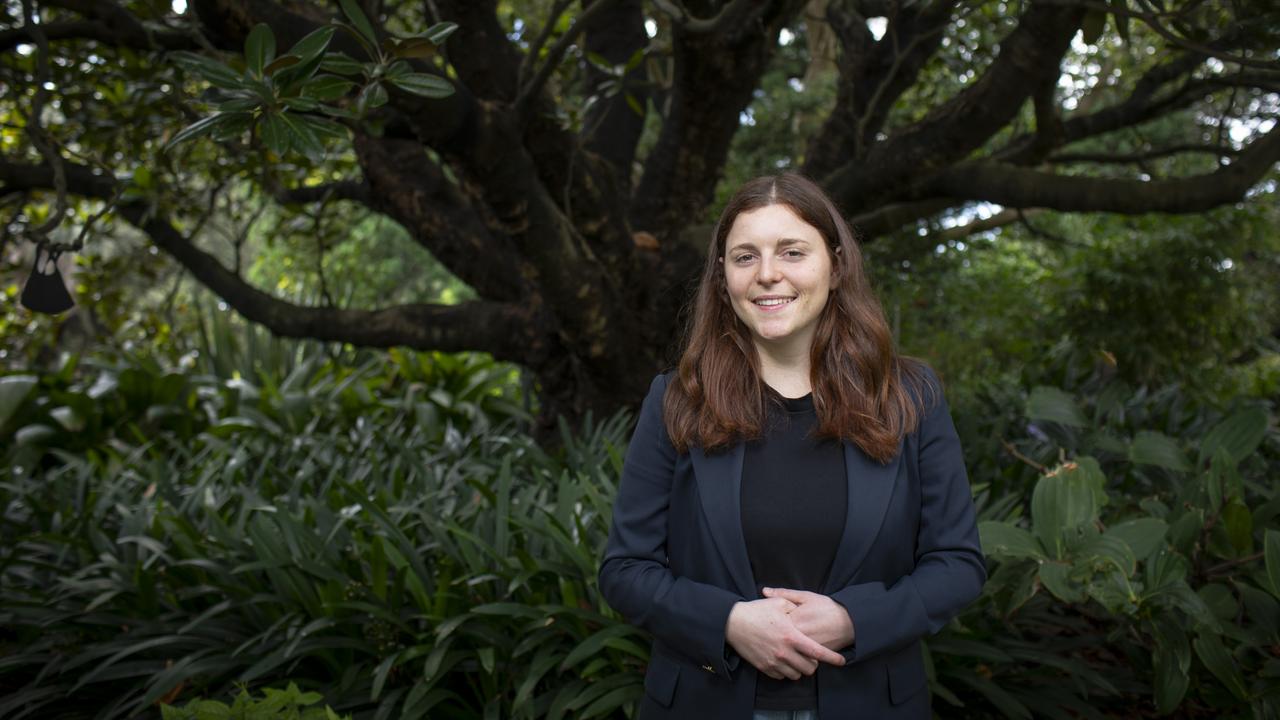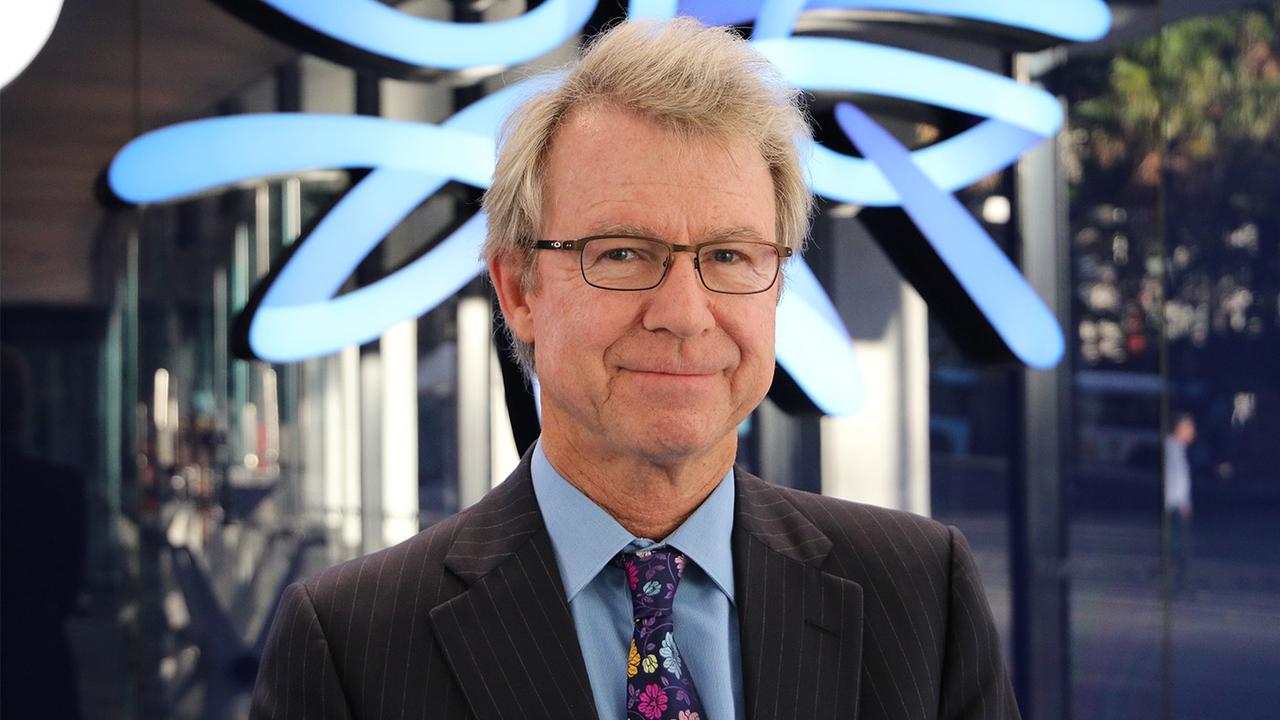Investment rollercoaster causes headaches: how to ride it out
Since 2020 almost every type of asset has produced a bumpy ride for investors. Experts share their tips to manage the volatility.
Business
Don't miss out on the headlines from Business. Followed categories will be added to My News.
Anyone who began investing in the past three years has experienced a hair-raising ride.
Shares crashed 33 per cent when Covid hit hard in March 2020, then reached record highs in 2021 and 2022, and have been bumpy since.
Property prices nationally also were dented by Covid, rebounded quickly into a boom and have fallen sharply in the past year. Fixed interest investments such as bonds suffered their worst year in decades, and cryptocurrencies such as bitcoin boomed 10 times in value before losing half of that in just 12 months.
Those moves are stomach-churning for any investor, let alone new ones, but analysts and advisers say there are several ways to ride the investment rollercoaster without getting sick.
The key, they say, is diversifying investments across different asset classes and regions. Putting all your eggs in one basket is a dangerous activity if that basket gets dropped.
“The market volatility in the last few years has shown why diversification is so important,” said eToro market analyst Josh Gilbert.
“Many assets and sectors have performed well at different periods – from tech stocks to commodities and crypto,” he said.
PANDEMIC TRIGGER
Mr Gilbert said the big bout of volatility in recent years was triggered by the pandemic, which led to large changes in central banks’ monetary policy where interest rates dropped then rose sharply and caused more turmoil.
“Other unprecedented events, such as Russia’s invasion of Ukraine, mean volatility has stayed high,” he said.
“For new investors, this isn’t easy to deal with as they’re likely seeing the value of their investments swing dramatically. However, if investing long-term, you should look past short-term volatility and focus on your long-term goals.”

FIGHT FOMO
Catapult Wealth director Tony Catt said a key to riding out investment volatility was being aware of FOMO, fear of missing out, and not getting caught in a herd mentality.
“FOMO was in vogue for that first 18 months with buy now, pay later stocks and crypto,” he said.
Both investment types have plunged in the past year.
“You have to be really careful – FOMO has a habit of pushing prices to unrealistic levels,” Mr Catt said.
However, do not paint all new-wave investment opportunities with the same brush. Out of the wreckage of the tech collapse in 1999-2000 grew Google, Amazon and other global technology giants.
Mr Catt said cybersecurity, AI and robotics were megatrends likely to be with us for years.
EYES OFF
Another tip for riding the rollercoaster comfortably is to avoid looking your investment’s value every day, Mr Catt said.
This is easier with real estate, where values are not published daily as they are on the stock market. Mr Catt said checking perhaps once a month was a good idea.
He said successful investors often used dollar-cost averaging, where they bought assets at regular intervals over time – typically monthly or quarterly – to smooth out investment returns.
“Don’t try and pick the bottom.”
Mr Catt’s final tip for a smooth investment ride is to stick to your own strategy, not somebody else’s.
“Don’t listen to every Tom, Dick and Harry at the pub,” he said.
The CEO of investment app Blossom, Gaby Rosenberg, said investors who bought into shares, property or crypto enjoyed strong gains before a big drop-off in all three markets.
“It’s been an interesting introduction to investing for Millennials and Generation Z,” she said.

FIXED INCOME
Ms Rosenberg said Blossom had noticed a large uptick in users seeking its fixed income investments as people sought more conservative places for their money.
She said exposure to fixed income could pay off in the current era of high interest rates and high inflation.
“Rethink your exposure to assets with high levels of debt,” she said.
“Think about how you can keep your cash working hard for you in this high-inflation environment.”
Riding out rough investment markets also meant controlling your own debt by paying down credit cards, mortgages and personal loans, Ms Rosenberg said.
“Then you can start redirecting your income to investing,” she said.
LONG-TERM THINKING
“Know your time frame – the shorter your time frame, the more conservative you might go. And you can start small – you don’t have to have a lot of money to buy investments.”
Ms Rosenberg said aim to make investing a habit by setting up recurring debits from your bank account into an investment platform or fund.
eToro’s Mr Gilbert said people facing bumpy financial markets should avoid panic selling during periods of heightened volatility, “especially if you’re investing long-term”.
He said time in the market was better than trying to time the market.
“The average bear market lasts 19 months and falls 38 per cent. By contrast, the average bull market lasts nearly four times longer, is four times larger, and is built on the lower inflation and interest rates outlook.”
Assets and sectors performed well in different periods, lending more weight to the argument that diversification helped manage volatility, Mr Gilbert said.
“The market volatility in the last few years has shown why diversification is so important,” he said.
EASIER INVESTING
“Access to information, technology advancements and lower barriers to entry have opened up a wider range of investment options and therefore made it far easier for investors to diversify in 2023.
“There are also more asset classes than there were 20 years ago – for example, crypto, which 23 per cent of Aussie retail investors are currently invested in.”
Online investment platforms have surged in recent years and some allow people to get started investing in shares, bonds and other investments with as little as $1. Assets that previously required thousands of dollars for serious investment now require less than $100, while exchange traded funds allow people to spread their money across an entire stock exchange index or sector with just one investment.
Dollar-cost averaging was crucial, Mr Gilbert said.
“After all, if it’s good enough for Warren Buffett, it’s probably good enough for everyone,” he said.
“Dollar-cost averaging reduces the risk of investing all at once and means you invest fixed amounts regularly whether the markets are up or down because the aim is to average out the highs and lows of the market.
“There will always be something to worry about. Unfortunately, market volatility isn’t new, and it won’t be going away any time soon, either. However, data shows that the longer you’re in financial markets, the more you’re rewarded through compounding.”

EMOTIONS: A BARRIER TO SUCCESS
AMP head of investment strategy Shane Oliver said emotion played a huge role in moving financial markets.
“It’s well known that the swings in investment markets are more than can be justified by moves in investment fundamentals alone – like profits, dividends, rents and interest rates,” he said.
“This is because investor emotion plays a huge part.
“The key for investors is not to get sucked into this emotional rollercoaster. Of course, doing this is easier said than done, which is why many investors end up getting wrong footed by the investment cycle.”
Dr Oliver said when volatility turned into a bear market, investor euphoria gave way to anxiety, denial, capitulation and ultimately depression.
At this point an asset was unloved and undervalued, but it was also at the point of maximum opportunity, he said.
“Once the cycle turns up again, depression gives way to hope and optimism before eventually seeing euphoria again,” Dr Oliver said.
He said there was always something for investors to worry about, and worries seemed magnified in today’s world where social media competed intensely with traditional media.
“Worries are normal around the economy and investments and sometimes they become intense – like now. But they eventually pass.”
Originally published as Investment rollercoaster causes headaches: how to ride it out









